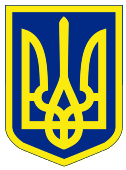Chernobyl

As NTodd notes, It is the 20 anniversary of one of the worst nuclear disasters in the world: the failure of the number four reactor at the Chernobyl nuclear power facility [Чернобыльская АЭС им. В.И.Ленина] near Pripyat, Ukraine. The West found out about the problem from alarms at Swedish nuclear facilities due to the fall out from Chernobyl. The Soviet authorities did not admit the problem for three days.
The BBC has one of their excellent In Depth sites up, and a great slide show that helps you to understand what happened, if not why.
The concrete cap over the destroyed reactor is cracking and must be replaced, but the site is still radioactive and can’t be worked on directly without killing people.



































4 comments
One of the news shows had a reporter over there and he had a little meter that showed how hot some things still are. The moss growing on the street was hotter because it held the stuff. What a nightmare that was and in my opinion still is.
This is why you don’t use nuclear weapons except as an absolute last resort. At best the radioactivity lasts centuries.
One possibly interesting side-note:
I arrived in Moscow 36 hours after Chernobyl was publicly disclosed in the West and just as it was being acknowledged by the USSR goverment. Tourists were pouring out of Kiev, which had been hosting an international jazz music festival, and surrounding provinces by the tens of thousands, but not many Russians knew why for another 24 to 48 hours.
As word seeped out, ordinary Russians became frightened to death, from Leningrad to Azerbaijan. In the earliest days, public mention of the word “Chernobyl” in public caused fathers to clap their hands over the ears of their their children and hustle them away … ordinary Russians to feign deafness … and Russian lawyers and other professionals to clam up.
Gorbachev had introduced “Glasnost” and a new U.S.S.R. Constitution only a few months earlier. None of the Russians I met with were at all confident they could rely on the implied and explicit promises of both, so they were being very circumspect about everything, especially Chernobyl. But within a few days of my arrival, western nuclear contamination, health, and power experts were gathering in Moscow and Kiev. Local and national USSR television stations began carrying Chernoyl news conferences — live — practically 24/7. Both the original English and Russian translation were available to everyone in homes, bars, and other public places– uncensored and quite candid.
Ironically, perhaps, the unprecedentedly open and candid Russian news coverage of the Chernobyl disaster seemed to underscore for the Russians, at least the ones I met with, that Glasnost was for real. They were amazed and even energized by the candid news coverage, even as they were appalled by the subject being covered.
In retrospect, one of the positives can be said to have come out of Chernobyl was that it gave all Russians a taste of of a truly uncensored press and freedom of expression. I expect you could draw a straight line from that to the dramatic changes that overcame Russian politics and social life in later days.
It was definitely a change over the earlier explosion at the nuclear waste site east of Urals in the 1950s. I don’t think they’ve ever admitted that it happened although you can see the results from space as a black dead zone.
Gorbachev was trying to save the Communist Party rule, but the old-timers wouldn’t cooperate, so they lost it all. He was a realist, and they thought they could preserve the failed system.